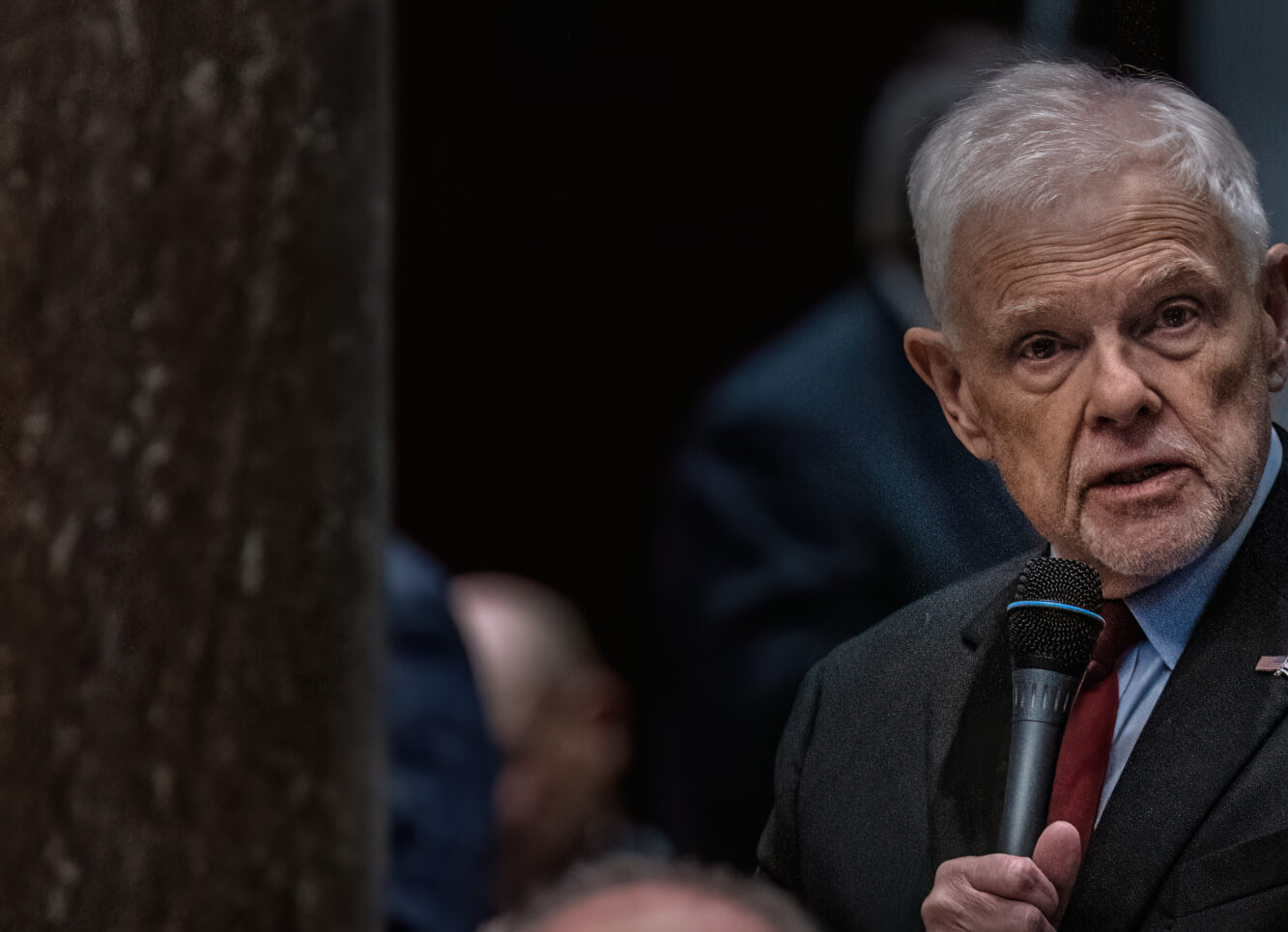Tennessee Sen. Kenneth Yager’s recent arrest while driving a campaign-funded car on a Georgia vacation sheds renewed light on the pitfalls of lawmakers’ not-uncommon practice of dipping into campaign finances to lease or purchase vehicles.
State law doesn’t prohibit this, but does require lawmakers to keep records of vehicle use and reimburse their campaign accounts for any mileage payments they receive from the state and any personal use of the vehicle.
The Tennessee Lookout’s review of campaign finance and state mileage reimbursement records for Yager found that since he began leasing a vehicle in 2017, he has simultaneously collected more than $20,000 in mileage from the state while using his campaign account to pay for gas, maintenance, insurance and other costs typically meant to be covered by mileage reimbursements.
Reached through a Tennessee Senate Republican Caucus spokesperson Friday, Yager said the state mileage reimbursements were an “oversight” paid to him despite him marking “no mileage” on his legislative per diem forms. State lawmakers are paid a per-diem rate intended to offset the costs of traveling to and staying in Nashville during legislative session and official legislative business. The spokesperson said “any mileage reimbursements from the state were received inadvertently and unknowingly to Sen. Yager.”
“To correct this, I will promptly reimburse my campaign account for the mileage discrepancy in question,” Yager wrote in a statement to the Tennessee Lookout.
The exact amount of overlap is difficult to calculate because gas expenses could be used for other trips on official business outside of the legislative session. Since January 2017, he logged nearly $21,500 in gas expenses paid by his campaign account, in addition to oil, maintenance, insurance and other charges typically covered by mileage reimbursement.
Yager, a Kingston Republican, was arrested Dec. 3 in popular tourist town Jekyll Island and faces charges of DUI, hit and run, and failure to stop at a stop sign after hitting another vehicle, police say. He was driving a Ford Edge that appears to bear his Tennessee Senate license plate, according to the Georgia State Patrol’s incident report and footage of Yager’s field sobriety test.
In a previous statement, Yager said the arrest was an “unfortunate incident” and he will “cooperate fully with authorities to bring (it) to an appropriate conclusion.”
Yager said he used his campaign-funded vehicle for the vacation because his personal vehicle “was not in working order for the longer journey (to Georgia).” He plans to reimburse his campaign account for the car’s December lease payment in compliance with ethics rules, he said.
Bill Young, the executive director of the state’s Bureau of Ethics and Campaign Finance Ethics Commission, said candidates and elected officials are permitted to lease or purchase vehicles and pay for gas and upkeep with campaign funds, “so long as the car is used for campaign or officeholder purposes.”
But he doesn’t recommend it.
“Because of the documentation required and the difficulty of ensuring no personal use of the car, I have discouraged this type of use of campaign funds,” Young wrote in an email to the Tennessee Lookout. “But again, Tennessee’s statutes do not prohibit this scenario.”
Since 2017, Yager has paid nearly $65,312 total to Ford, Lincoln Automotive Financial Services and Harriman-based Jerry Duncan Ford.
He has leased three vehicles, never more than one at a time, according to a spokesperson. He stopped using his campaign account to reimburse himself for mileage when he began leasing his first vehicle, records show.
In total, Yager has spent about $115,345 in campaign funds on the lease and upkeep of those vehicles over the last decade. His car-related expenses include:
- $21,491 for gas
- $15,828 in reimbursed mileage
- $9,194 for car insurance
- $2,441 for oil changes, maintenance and repairs
- $344 for SiriusXM Radio
- $105 for car washes
Yager’s district includes parts of nine counties stretching along the state’s northern border from the outskirts of the Nashville Metropolitan area to counties on the outskirts of Knoxville.
Tennessee Senate District 12 contains Campbell, Clay, Fentress, Macon, Morgan, Overton, Pickett, Roane and Scott Counties. (Photo: Tennessee General Assembly)
He said he obtained approval from the Bureau of Ethics and Campaign Finance to lease a vehicle to cover “extensive” travel required to serve constituents.
“As the representative of one of the largest geographical districts in the General Assembly, which extends from the exurbs of Nashville to my home in East Tennessee, I sometimes travel up to 1,000 miles per week for both campaign and official state purposes,” Yager said.
Other lawmakers have cited similar reasons for using campaign funds to pay for vehicles.
Sen. Steve Southerland, R-Morristown, spent almost $50,000 in campaign funds to purchase a new car — his third campaign vehicle purchase in the last 10 years, The Tennessean reported in July. He averages 40,000 miles per year in driving related to state business, he told the publication.






